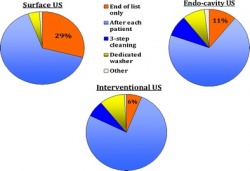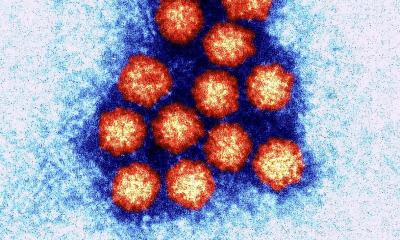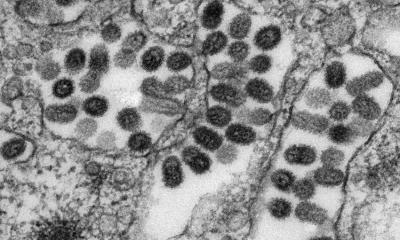ESR survey
Infection prevention and ultrasound probe decontamination practices in Europe
Although ultrasound is considered one of the safest imaging modalities, concerns have been raised regarding potential infection transmission risks through US procedures. A survey was undertaken by the European Society of Radiology (ESR) to establish infection prevention and control measures in US and to highlight the importance of good medical practice.

An online survey was sent to all 22,000 full ESR members. The response rate of completed surveys was 4.3 % (946 practitioners, 97 % of which were radiologists, mostly working in larger hospital settings). Among respondents, 29 %, 11 % and 6 % did not disinfect the US probe after every patient when performing standard surface US, endo-cavity US and interventional procedures, respectively. Eleven percent did not always use probe covers for endo-cavity US; for interventional procedures, the proportion was 23 %. A minority used sterile gel sachets in direct patient contact for endo-cavity scans (30 %), and 77.5 % used sterile gel for interventional procedures.
Conclusions
The survey results highlight a wide range of practices throughout Europe and the need to raise awareness amongst practitioners regarding the importance of infection prevention and control measures. The development of European recommendations encompassing all US examinations, together with education is a priority.
Read the full survey here: http://link.springer.com/article/10.1007/s13244-016-0528-z
Publication:
Nyhsen, C.M., Humphreys, H., Nicolau, C. et al. Insights Imaging (2016) 7: 841. doi:10.1007/s13244-016-0528-z: Infection prevention and ultrasound probe decontamination practices in Europe: a survey of the European Society of Radiology
This article is distributed under the terms of the Creative Commons Attribution 4.0 International License (http://creativecommons.org/licenses/by/4.0/).
23.11.2016





